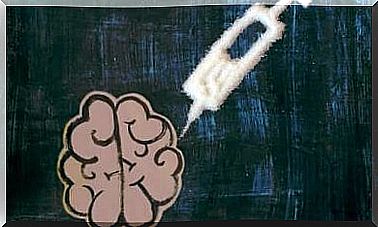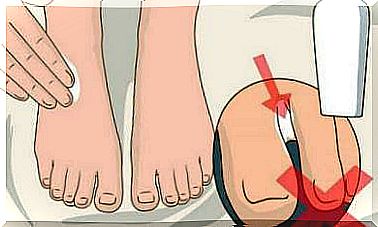Encephalitis: Symptoms, Causes And Treatment
Fever, headache and fatigue can all indicate encephalitis. This disease can even cause a coma or be fatal. It is a serious pathology from which, unfortunately, children under one year old often suffer.
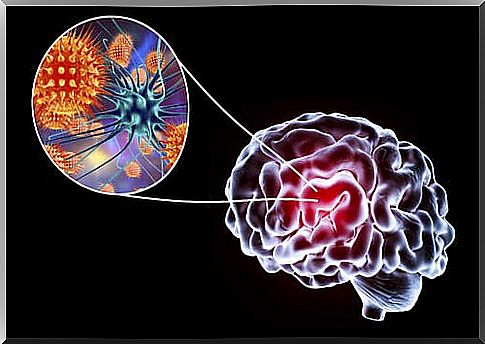
Encephalitis is inflammation of the brain that in most cases is caused by viruses. But there are other possible causes as well. It is often a complication of another infectious disease.
Fortunately, we are talking about a relatively rare disease, the incidence of which has been significantly reduced in recent years. We owe this to the increased vaccinations as part of an official vaccination schedule. Nevertheless, mostly children are affected by this disease.
It is estimated that around 5 to 10 in 100,000 children suffer from encephalitis, mostly in the first year of life. It is a very complicated situation and the life of the affected child is at risk.
It is essential to recognize this disease as quickly as possible, but the causes and symptoms are often mixed up. Today we are going to explain the most important things you should know about encephalitis: the causes, symptoms and treatment options.
Causes of Encephalitis
As mentioned earlier, it is an inflammation of the brain tissue. This disease can have a variety of causes, but mostly viruses are responsible. However, it could also be a bacterial infection.
If the infection occurs directly in the brain, it is called primary encephalitis. However, if the inflammation originates in another area of the body and penetrates into the brain, it is known as secondary encephalitis.
In children, it often occurs as part of an infection from rubella, measles, or mumps. Fortunately, most children are now vaccinated against these diseases. Other possible causes are:
- Herpes virus: Herpes simplex as well as Epstein Barr or chickenpox can cause encephalitis.
- Rabies: This virus is usually transmitted through a bite from an animal.
- Enterovirus: An example of this is poliomyelitis.
- Bacterial meningitis: Inflammation of the meninges that is not properly treated can lead to encephalitis.
- Parasites
It is important to emphasize that encephalitis is not contagious on its own. However, one has to consider the cause as it could be an infectious disease. There can also be other triggers, such as cancer.
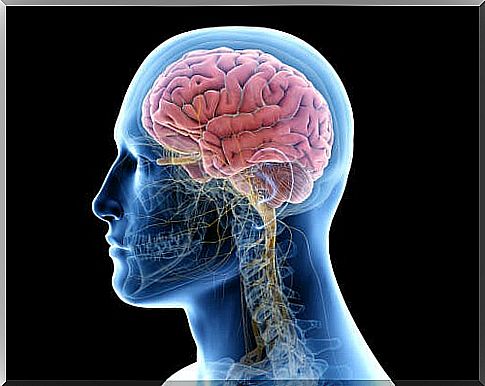
The symptoms of encephalitis
Since viruses are usually the cause of this disease, the symptoms can initially be very unspecific. They can manifest themselves as tiredness, muscle pain and headaches. In addition, there is usually a fever.
As the disease progresses, the symptoms become more intense. Patients may have cramps, lose consciousness, or have trouble speaking. In addition, some sufferers lose sensitivity in different parts of the body.
In babies, symptoms are often very difficult to spot. The children are usually irritable quickly, suffer from nausea and cannot be properly nourished. In severe cases, the children can fall into a coma. If not treated in a timely manner, encephalitis can be fatal.
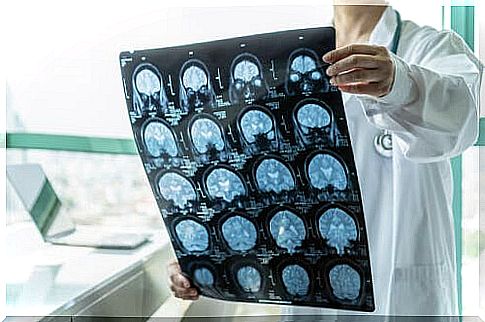
Encephalitis: treatment options
The diagnosis of this disease is made on the basis of various examinations: A blood and urine analysis is very informative in order to correctly orient the diagnosis and to find out possible causes.
Magnetic resonance or computed tomography is usually also needed to see the brain. Sometimes a lumbar reduction is necessary in order to collect cerebrospinal fluid (Liquor cerebrospinalis) and analyze it in the laboratory.
To treat encephalitis, the first thing the doctor prescribes is stability and rest. He gives the patient a pain reliever, such as acetaminophen, and non-steroidal anti-inflammatory drugs (NSAIDs).
What to do if there are signs of encephalitis
This disease is difficult to diagnose in children, but certain signs may indicate it. Adults usually have intense headaches and fevers and impaired cognitive function.
Some viruses that can cause encephalitis require specific treatment. But this is not always the case. If you have the slightest suspicion, you should definitely see a doctor. Do not forget that this disease can be life threatening.





